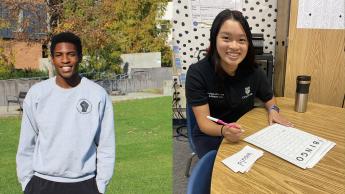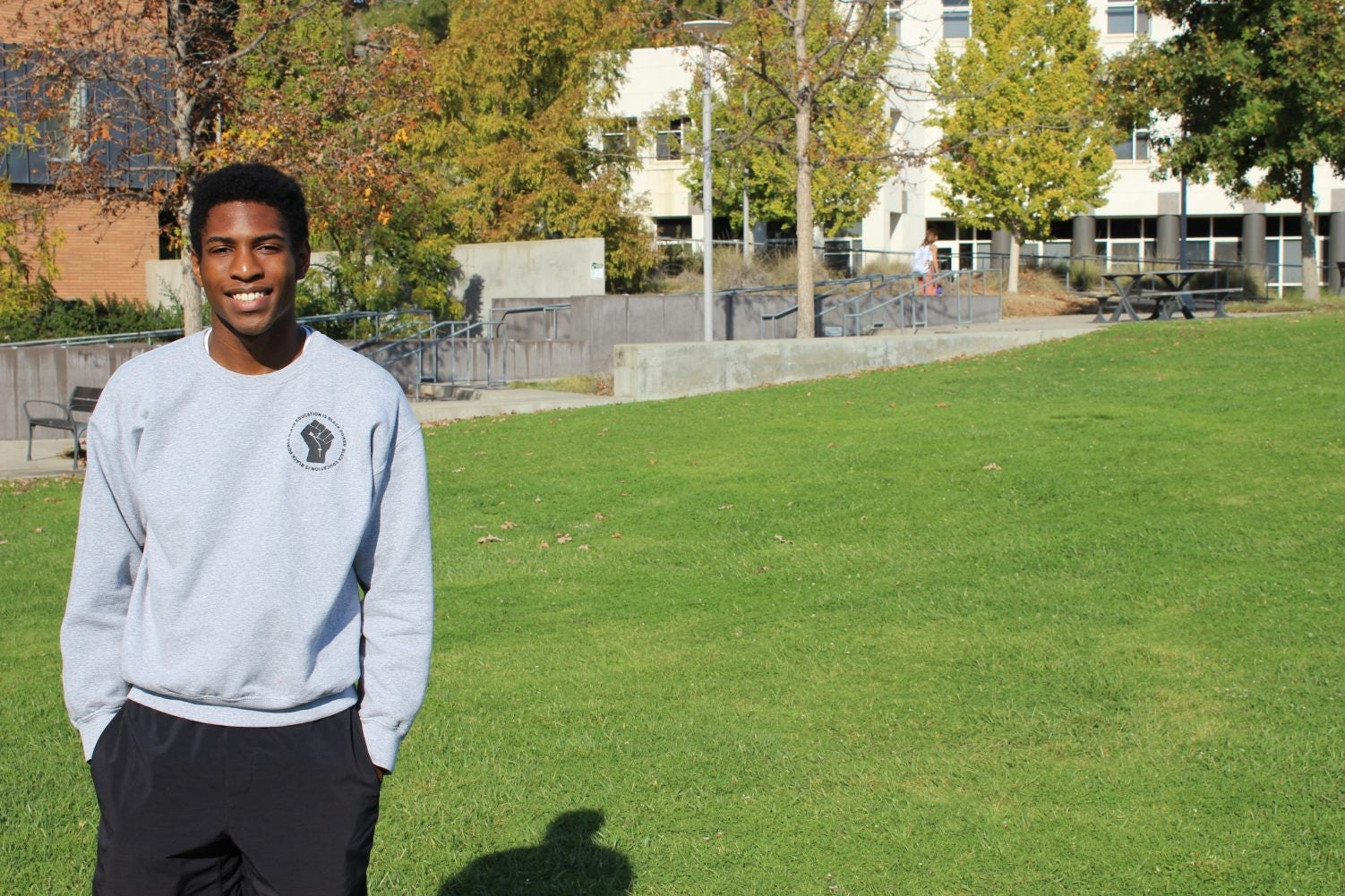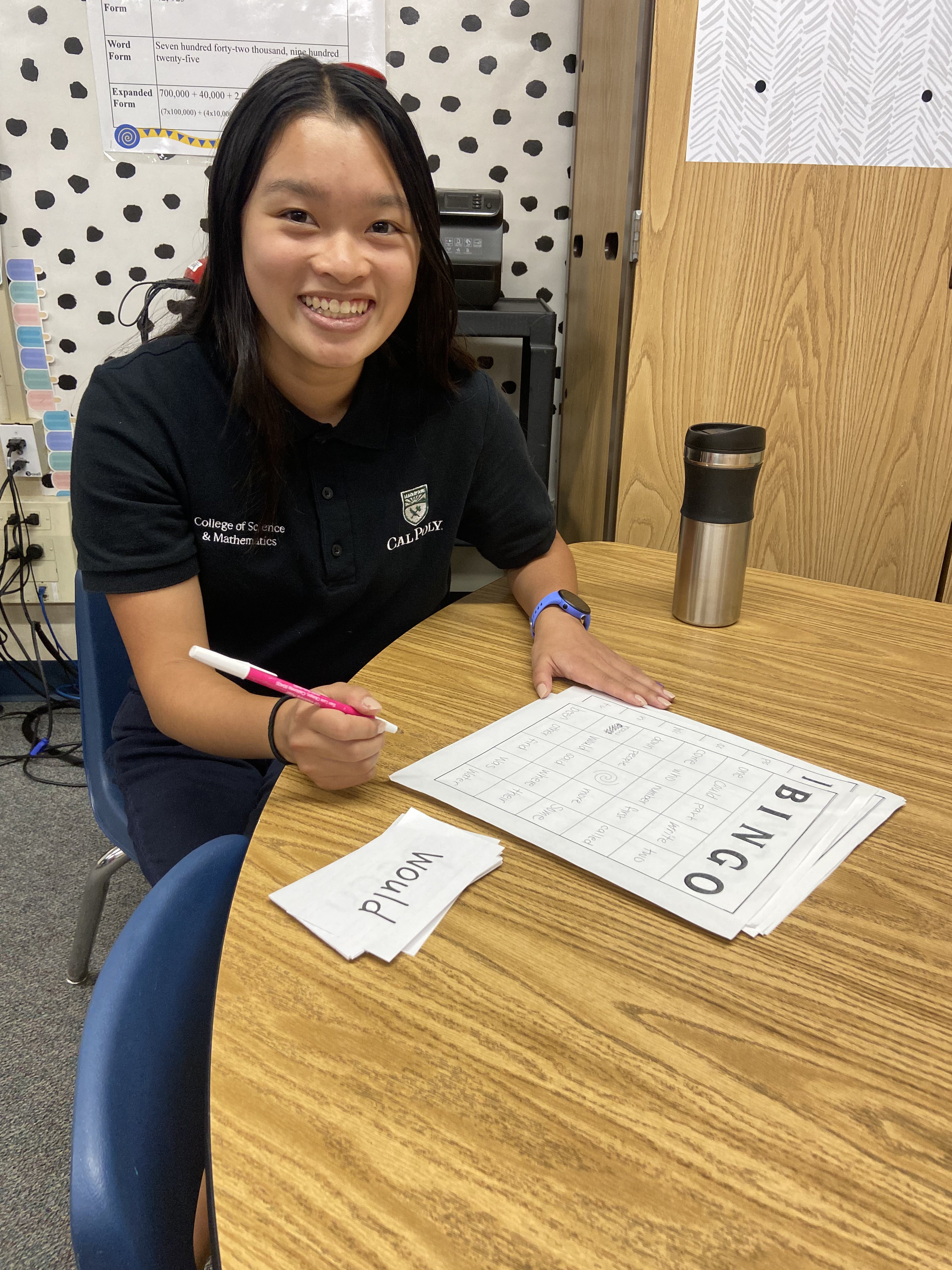New Equity in Education Minor Helps Students Become ‘The Best Teacher I Can Be.’

After college, second-year English major Kendall Taylor hopes to become a high school English teacher and influence young peoples’ lives.

To help achieve his goal, Taylor recently enrolled in the School of Education’s new Equity in Education minor. The minor offers an opportunity to better understand educational history, develop teaching skills and learn more about social justice and ethnic studies.
“I’m really interested in representation of educators of color and classes that not only focus on what teachers will be teaching, but also the teachers themselves,” Taylor said.
Taylor, who is also pursuing an ethnic studies minor, said ethnic studies classes grew his interest in social justice.
“Courses that have an emphasis on diversity, equity and inclusion have reinforced concepts for me and allowed me to see things through a different lens,” he said.
There’s also an on-the-ground, Learn by Doing component to the classes as well. One of his current classes for the minor, Children’s Learning and Development in Educational Settings, involves hands-on work and modeling.
“It’s great because it forces me to be in the teacher’s seat,” Taylor said. “We’ll learn a concept and then we’ll demonstrate it with a new group. I think that’s especially helpful with public speaking.”
The Equity in Education program — open to any undergraduate major except liberal studies, which already offers similar curriculum — generally explores the historical, philosophical, and ethical foundations of education. There are three pathways, each with different emphasis and focus, including one on kindergarten through 12th grade, educational studies, and social justice and critical pedagogy.
Both School of Education and ethnic studies classes are included in the coursework.
Data shows that teachers of color are vastly underrepresented in California schools, according to WestEd, a nonprofit organization that gathers educational data. In the 2018-2019 school year, data from K-12 public schools showed 77.4% of students and just 39.1% of teachers in the state were people of color.
“We’re thinking about how we can get our teaching workforce in K-12 and other areas of education to reflect the population of California,” said Briana Ronan, a Cal Poly associate professor in the School of Education.
History professor Joel Orth, who is also a program advisor, said they hope the minor will help empower students as they pursue a path in education.
“We would like to identify students early in their career to have that opportunity to support them at those points when they might have gone off in another direction with resources to encourage them stay in education and make this work,” Orth said.

Animal science major Kaylie Kwan, who is switching to a biology major, found the Equity in Education minor while looking through course listings.
“Having a basis for knowing how to communicate and educate people, and sharing knowledge, in health professions and related careers is so important,” Kwan said. “I've been part of the Learn by Doing labs last spring and teaching assistance in math and science. It has been really cool to have those opportunities to try teaching.”
Kwan said that she wants to incorporate some aspect of education in her future career as a veterinarian, whether it’s through a school or community education.
“I can say a lot of my interest in science comes from my own experiences with my science teachers in the past,” Kwan said. “Having an Equity in Education (minor) degree is really important to me, especially being a person of color at a PWI (predominantly white institution). Just being able to learn about how identity plays a role in education is so valuable.”
In his statement of purpose for admission to the program, Taylor said that his ethnic studies classes have taught him that establishing culturally sustaining pedagogy opens neural pathways and allows for information to embed in students’ long-term memory.
“This is something that I was deprived of in my education, so the very notion of an academic minor that prioritizes this as its ultimate outcome is something that I would want to take on immediately so I can be the best teacher I can be,” he said.
Want more Learn by Doing stories in your life? Sign up for our monthly newsletter, the Cal Poly News Recap!




